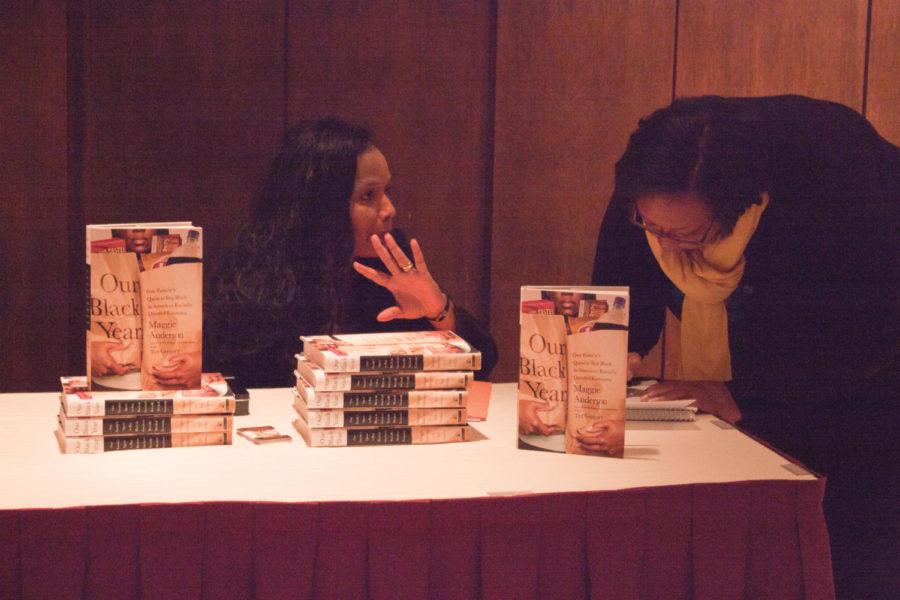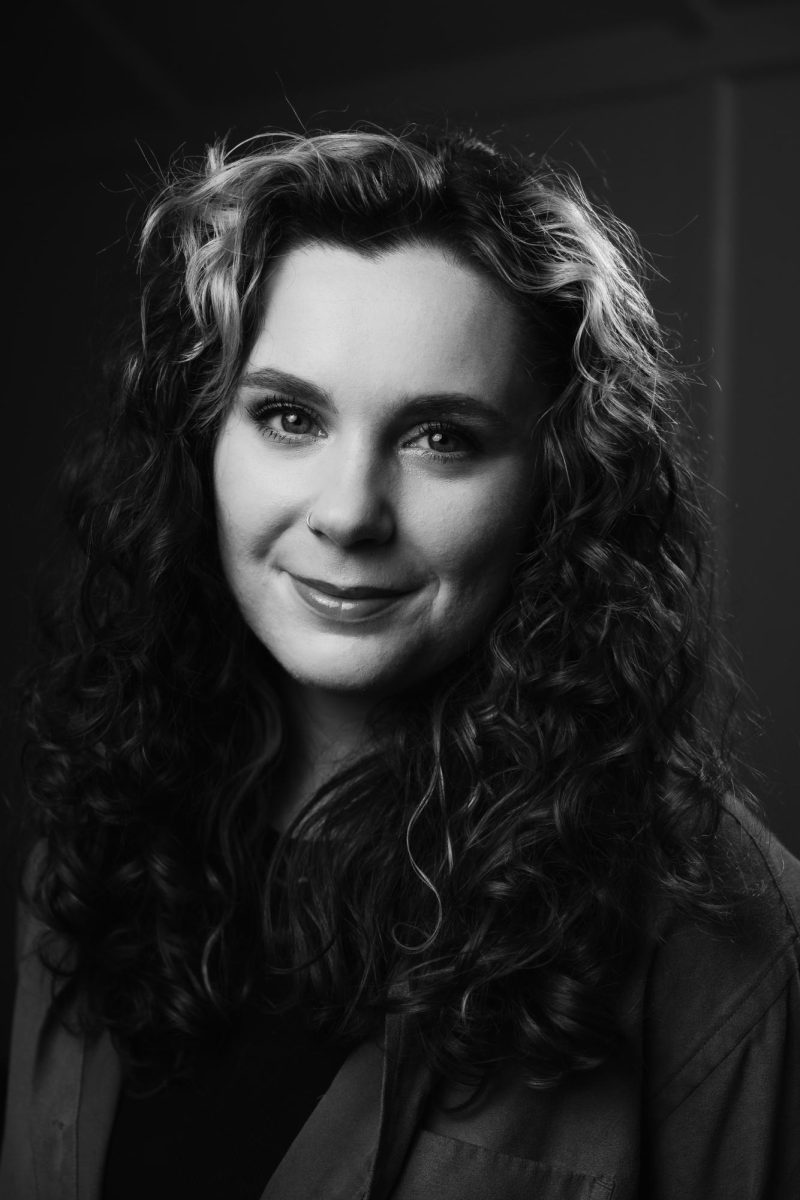Our Racially Divided Economy
November 9, 2012
Maggie Anderson, author of the book “Our Black Year,” spoke on the night of Thursday, Nov. 8, in the Sun Room of the Memorial Union. The book is based on a year in which she and her family bought food, clothes and other products from only black locally owned businesses to help support the “black economy.”
Anderson began her speech with a quote from Martin Luther King Jr.: “The ultimate measure of a man is not where he stands in moments of comfort and convenience, but where he stands at times of challenge and controversy.”
Anderson said she wanted to “buy black” for one year to “prove the power and importance in the black community”
Anderson grew up in Miami, where she was the first black editor-in-chief of her school paper. In graduate school, she was taught by Barack Obama. She now lives in Chicago with her two children.
“I don’t want my children to think the can just shop at Sears or work at a Sears, but that someday they could own a Sears if they want,” Anderson said. She said that even though we have a black president, there are no major chains run by a black family.
“In early 1930s, there were 64,000 black owned grocery stores. In beginning 21st century there were 19. Now there are only six.”
Because so many businesses are run and owned by people that are not black this makes a huge impact on the economics of black community and society, she said.
“That’s why our neighborhoods are overrun by drugs and gangs, our education is underfunded and there is nothing illegal about it. … The problem doesn’t have to do with black people being lazy but because black businesses employ black people, and these businesses are struggling because we don’t put money into them.”
Many neighborhoods that are mainly made up of black people will not actually take the time to spend they’re money in a locally owned store, they don’t buy black, Anderson said. “Less the 6 percent of the money earned by black people goes back into the black community.”
She went on to talk about how people need to be conscious consumers, companies wont start providing more jobs for black people and having black people actually produce products marketed to them unless the community starts tell stores that is what they will buy.
“Businesses see black people only as consumers, not business owners,” Anderson said. “We have become a consumer society.”
She spoke about how a business is more likely to give a job to a white woman or an Asian American than a black person, and how the view of the black community as a consumer society needs to change.
Anderson said about her struggles during her year as a conscious consumer: “My mother was dying; I was receiving death threats; and my children were being teased for wearing clothes that didn’t fit them and not having new toys.”
But through these struggles she still managed to make it through that year, and when added up she put $90,000 back into the black communities.
She ended by encouraging and telling Iowa State students that they have a duty to go out and help their community and that “This is not the story of a new extreme thing a family did, but about the little things everyone can do.”
Cameron Beatty, third year doctoral candidate in school of education and board member for the Black Graduate Student Association said: “I absolutely agreed with everything she said, it made me think about things in a different way. … Being conscious of where we buy things is important and what can we do with that buying power.”
Aja Holmes, doctoral candidate in the school of education and president of BGSA, agreed saying “It makes me want to become a conscious consumer and make sure my dollar is spending more time in the black community.”
To help with this, she said: “Before I go someplace for a conference I can look up a black owned company and get my meal or buy my products there, I can do the work before I go.”
Annie Pierre, graduate student in higher education and student affairs said: “I thought it was really eye opening, I had never really considered how issues in the black community were related to economic disparities. We have so much buying power and that less than 6 percent is staying in black community is disheartening”

















